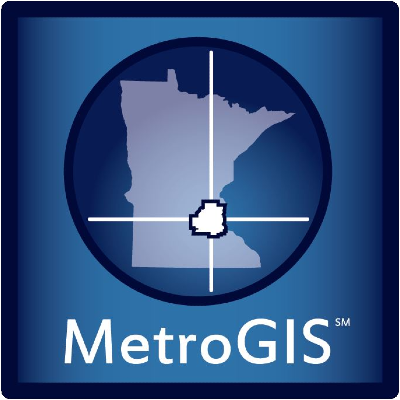What is MetroGIS?
MetroGIS is an award-winning, regional geographic information systems initiative serving the seven-county metropolitan area of Minneapolis-St. Paul, Minnesota. MetroGIS is defined as a voluntary collaboration of local and regional governments, with partners in state and federal government, academic institutions, non-profit organizations and the business community providing a regional forum to promote and facilitate widespread sharing of geospatial data.
Purpose and Goal
MetroGIS’s primary purpose is to promote and facilitate widespread sharing of commonly needed geospatial data among organizations that serve the Minneapolis-St Paul Metropolitan Area. Our goal is to institutionalize the sharing of accurate and reliable geospatial data so that both user and producer communities share in the efficiencies of users being able to effortlessly obtain data needed from others, in the form needed, and when it is needed.
Role of the Metropolitan Council
The Metropolitan Council assumes fiduciary and administrative responsibilities for the MetroGIS collaborative, providing dedicated staff time and funding for geospatial projects with regional significance. The Council is a primary stakeholder and a direct beneficiary of the collaborative effort.
Governance in Brief
 MetroGIS has historically been governed by both a Policy Board and Coordinating Committee. It is currently governed by the Coordinating Committee.
MetroGIS has historically been governed by both a Policy Board and Coordinating Committee. It is currently governed by the Coordinating Committee.
The Policy Board is comprised of county commissioners from the region’s seven counties as well as representatives from metropolitan cities, school districts and watershed districts.
The Policy Board is convened as needed to discuss and act upon policy or major fiscal issues of import to the collaborative and their constituent governments and interests.
On December 30, 2022, the MetroGIS Coordinating Committee dissolved the Policy Board with the option to request to reconstitute it as circumstances arise or events warrant that necessitate its oversight and actions.
The Coordinating Committee is comprised of management and senior technical staff from local, county, regional and state entities. The Coordinating Committee sets the work plan, project plan and progress review of MetroGIS initiatives.
